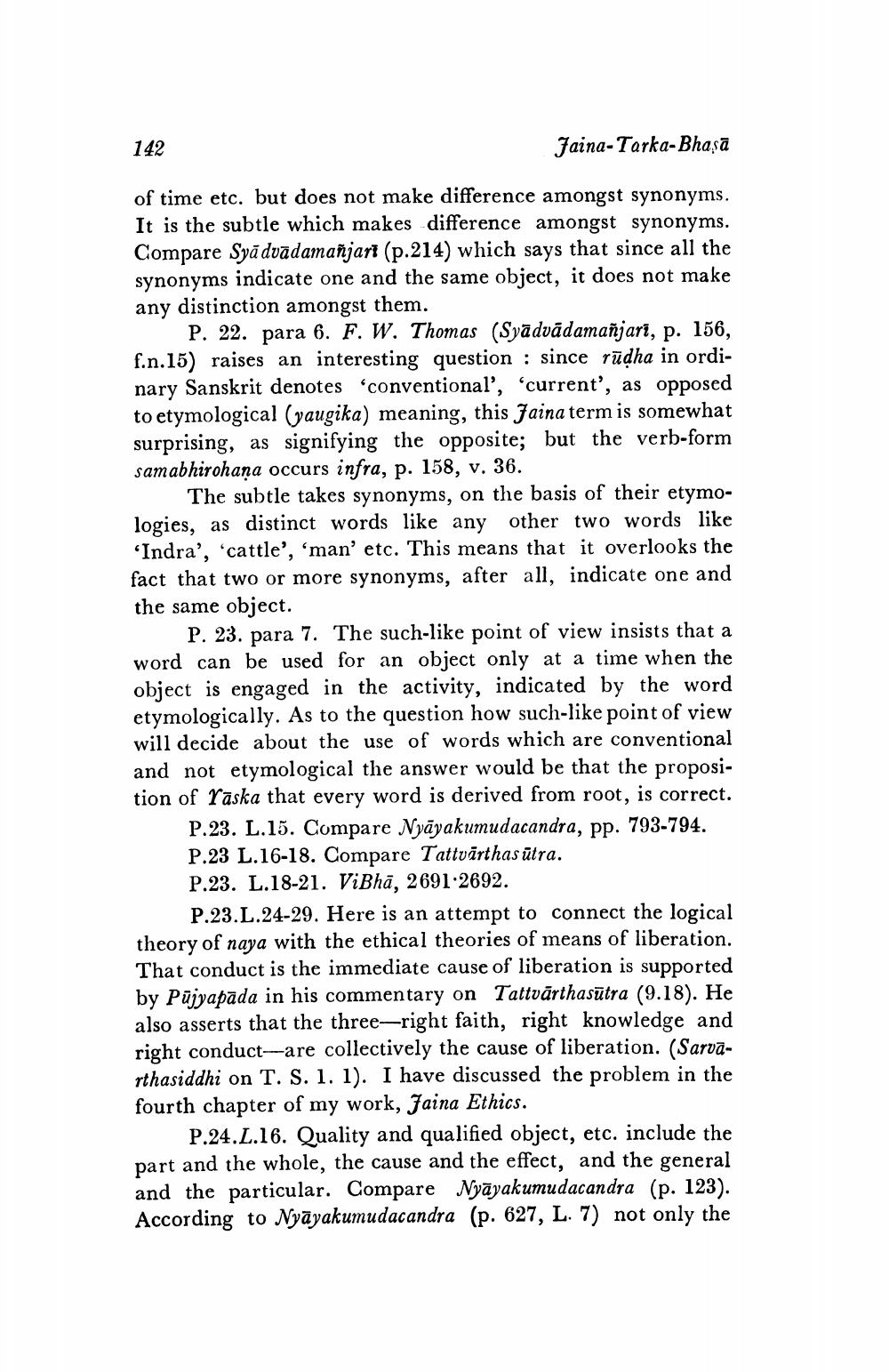________________
142
Jaina-Tarka-Bhaşā
of time etc. but does not make difference amongst synonyms. It is the subtle which makes difference amongst synonyms. Compare Syā dvādamañjart (p.214) which says that since all the synonyms indicate one and the same object, it does not make any distinction amongst them.
P. 22. para 6. F. W. Thomas (Syadvādamañjari, p. 156, f.n.15) raises an interesting question : since rūdha in ordinary Sanskrit denotes 'conventional', 'current', as opposed to etymological (yaugika) meaning, this Jaina term is somewhat surprising, as signifying the opposite; but the verb-form samabhirohaņa occurs infra, p. 158, v. 36.
The subtle takes synonyms, on the basis of their etymologies, as distinct words like any other two words like 'Indra', 'cattle', 'man' etc. This means that it overlooks the fact that two or more synonyms, after all, indicate one and the same object.
P. 23. para 7. The such-like point of view insists that a word can be used for an object only at a time when the object is engaged in the activity, indicated by the word etymologically. As to the question how such-like point of view will decide about the use of words which are conventional and not etymological the answer would be that the proposition of raska that every word is derived from root, is correct.
P.23. L.15. Compare Nyāyakumudacandra, pp. 793-794. P.23 L.16-18. Compare Tattvārthasūtra. P.23. L.18-21. ViBhā, 2691.2692.
P.23.L.24-29. Here is an attempt to connect the logical theory of naya with the ethical theories of means of liberation. That conduct is the immediate cause of liberation is supported by Pujyapada in his commentary on Tattvārthasūtra (9.18). He also asserts that the three-right faith, right knowledge and right conduct-are collectively the cause of liberation. (Sarvarthasiddhi on T. S. 1. 1). I have discussed the problem in the fourth chapter of my work, Jaina Ethics.
P.24.L.16. Quality and qualified object, etc. include the part and the whole, the cause and the effect, and the general and the particular. Compare Nyāyakumudacandra (p. 123). According to Nyāyakumudacandra (p. 627, L. 7) not only the




